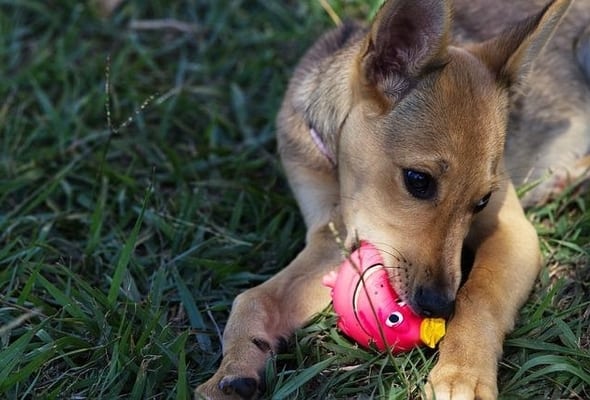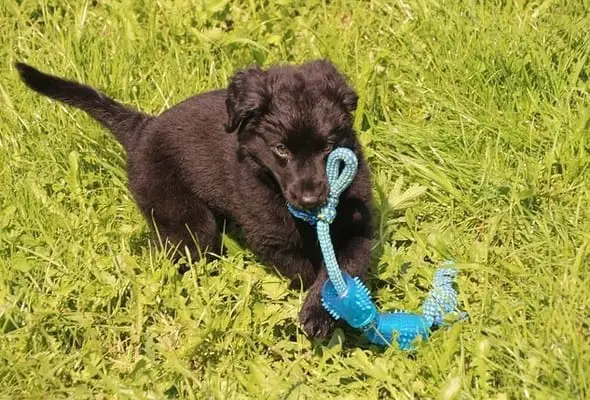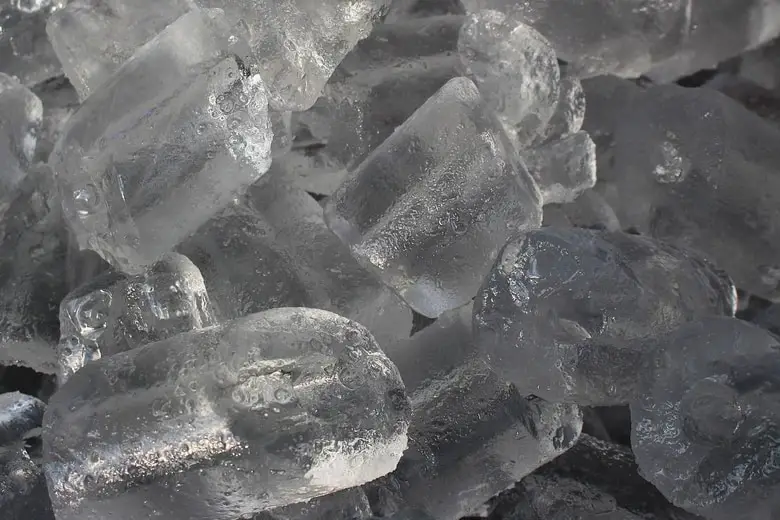Owning a puppy is a really new and exciting time, but some inexperienced owners may have questions about their puppy’s behavior. If your puppy is constantly chewing on anything they can get their mouth around, they are probably teething.
In this article, we will answer questions you may have about your puppy while they teethe. Can puppies have ice cubes for teething? How long do puppies teethe? We will also cover a wide range of topics that you may be interested in about your pup’s teething journey.
Can Puppies Have Ice Cubes for Teething?
Puppies are more than okay to chew on ice cubes while they are teething. Ice cubes can soothe any soreness, aching, or discomfort that your puppy may be experiencing.
Ensure that you aren’t feeding your puppy large ice cubes, they must be the appropriate size to verify that your puppy won’t choke. We recommend constant monitoring when your puppy is chewing on anything!
Ice cubes are so easy to replenish and stock up on, and they cost nothing to make! This is a great option for a pup who is constantly chewing on things. If your puppy seems too small to safely enjoy an ice cube, you can always get crushed ice to let your pup chew on!
The only downside to this option is that not all puppies will be perfectly okay with chewing on plain ice cubes. Lucky for you, there are countless options when it comes to teething options and relief for your puppy!
Other Teething Items
As we stated previously, not all puppies are going to enjoy chewing on plain ice cubes. Luckily, there are endless options when it comes to items your puppy can safely teethe on!

If you need an immediate substitute, try wetting a small hand towel and freezing it, but always observe your puppy to make sure they are staying safe while chewing on this option.
Another awesome option is buying popsicle molds, and filling them with puppy-safe treats that you can freeze! Bananas, dog-safe peanut butter, and wet puppy food are just a few ideas!
If your pup has a sensitive stomach, you can put their regular kibble in the mold, fill it with water and then stick it in the freezer. There are puppy toys made specifically for teething that are widely available at multiple price points.
Try checking your favorite pet supply store, local grocery stores, or online pet stores. Massaging your puppies’ gums is another great option that you can give a go at!
Of course, not all puppies will let you massage their gums, but it never hurts to try. If your puppy seems to be in a lot of pain too often, bring them to your local veterinarian to verify that there are no underlying causes.
Signs Your Puppy is Teething
Aside from the obvious chewing on everything in sight, do you know how to tell if your puppy is actually teething? Luckily, there are some other telltale signs to be on the lookout for.

Firstly, If you notice your puppy’s favorite toy has flecks of blood on the areas that they were chewing on, they are likely teething. Now don’t get too stressed, puppies will lose their baby teeth and start growing their adult ones just like human babies.
Is your puppy drooling constantly? Have red and swollen gums? Those are tell-tale signs that your pup is teething. Normally, a trip to the vet will give you an idea of how long your pup has been teething.
It’s also very common to find a random puppy tooth or two around your house. If your puppy seems to be eating slower, or crying out in pain while eating, they are most likely teething.
You can try pouring warm water over their kibble and letting it sit for a few minutes. This softens the food, and makes it easier to eat too!
How Long Do Puppies Teethe?
Puppies will generally have all of their adult teeth grown by 6 months of age. However, this can vary for each pup. Some puppies can take up to 8 months to grow all of their adult teeth, so try to have a little patience because it might just take them a little longer than others.
If your puppy seems to still be teething, crying out in pain or has constantly red and swollen gums past the 8-month mark, we highly recommend bringing them to a professional veterinarian to determine what exactly is going on.
Puppies can have retained baby teeth, which requires a professional diagnosis and treatment plan.
What to Feed Teething Puppies
As mentioned previously, if your puppy seems to be having a tough time eating because of pain, a simple way to help would be by soaking their kibble in warm water until it is a softer texture. Make sure the food is not too hot before letting your pup eat.
No matter the breed, all puppies need to be fed food that is formulated for puppies. They require a higher calorie count than adult dogs do to healthily grow, so always verify that any food you feed is catered to puppies.
More often than not, the brand of puppy food that you feed your pup will have a wet food version. You can mix some of the wet food with their dry kibble, which will make it softer and therefore easier to eat!
If you are looking for a treat that is of a softer texture, try looking for treats that are marketed as training treats. These will generally be soft, small, and easy to eat. If you have a smaller puppy, you can break them up into smaller pieces which will be easier for your pup to chew!
Conclusion
As we have learned, puppies teethe just like human babies do, and it can take them up to 8 months to grow their adult teeth! There are a variety of ways to help your puppy, from massaging their gums to softening their kibble.
We hope you found this article helpful and can incorporate these tips and tricks into your puppy’s teething journey!

